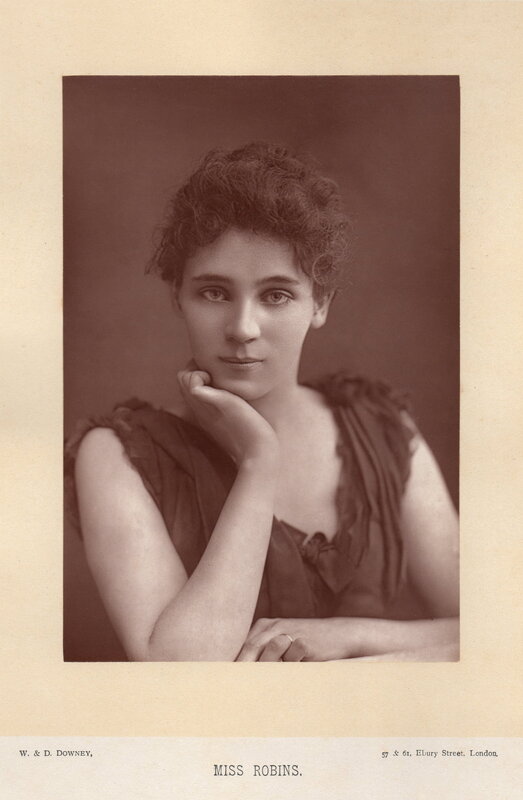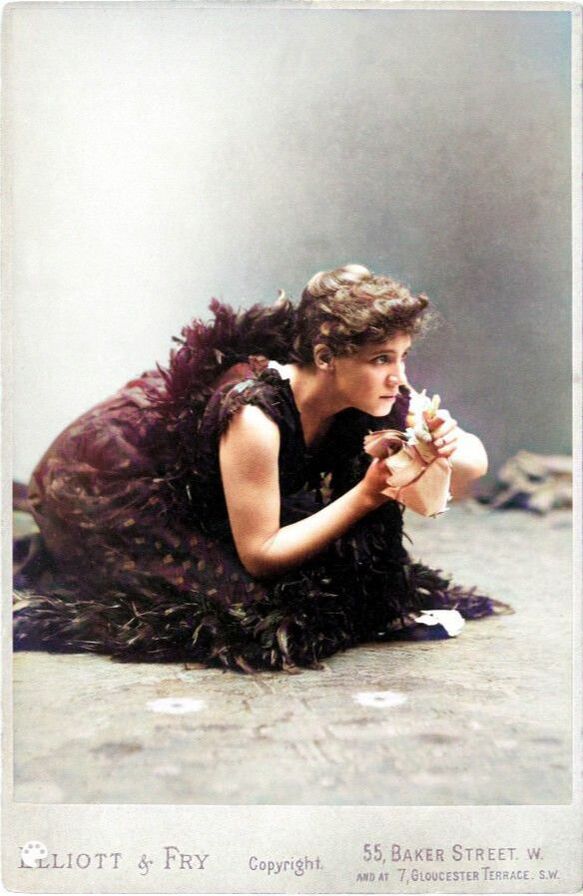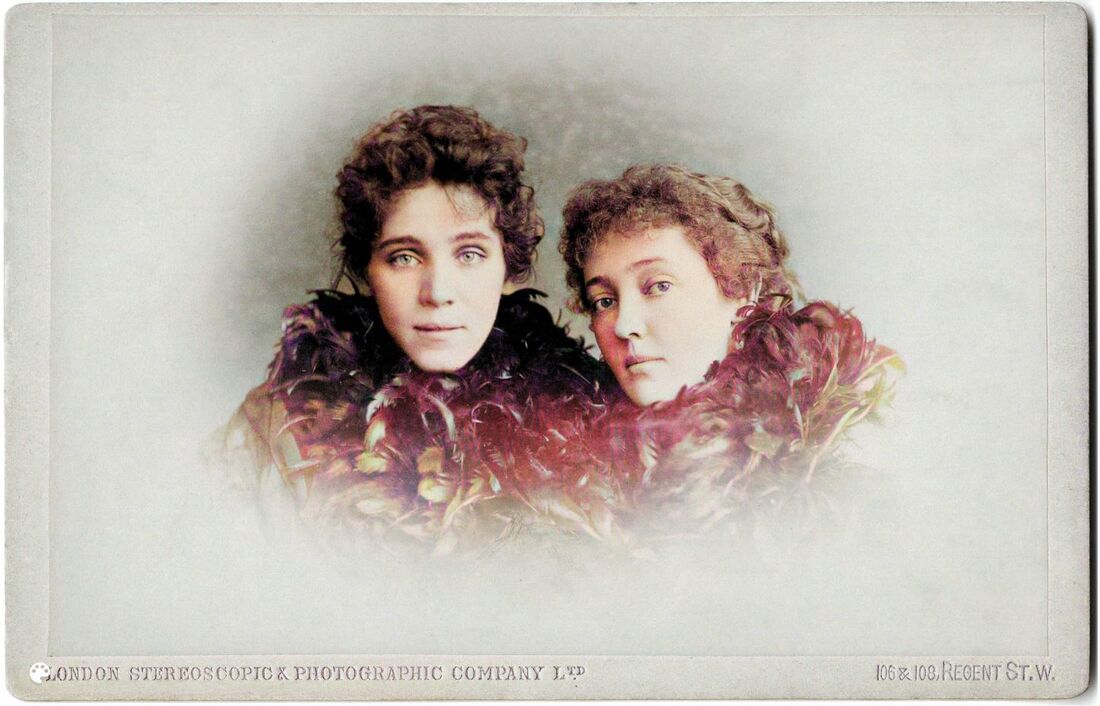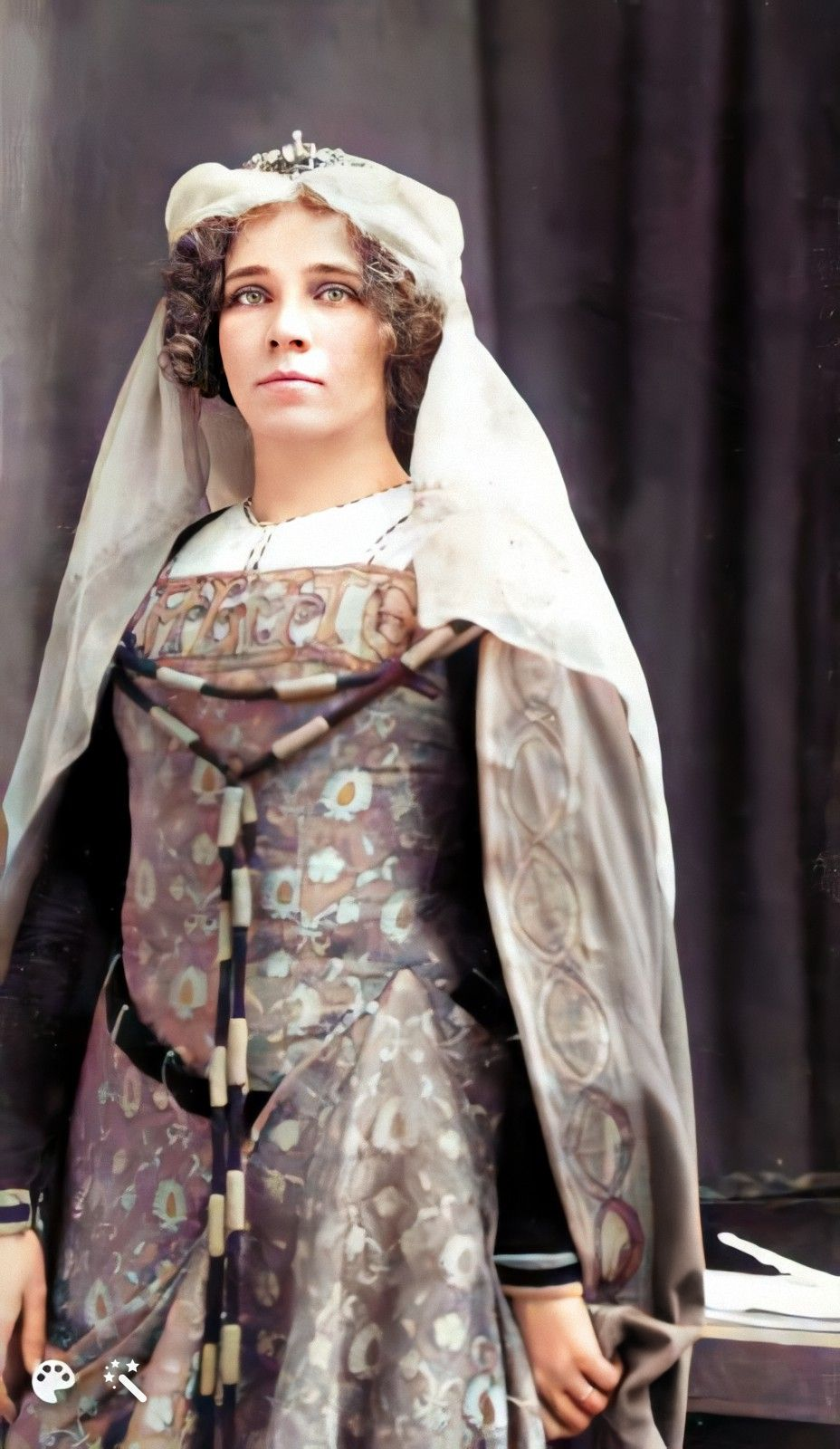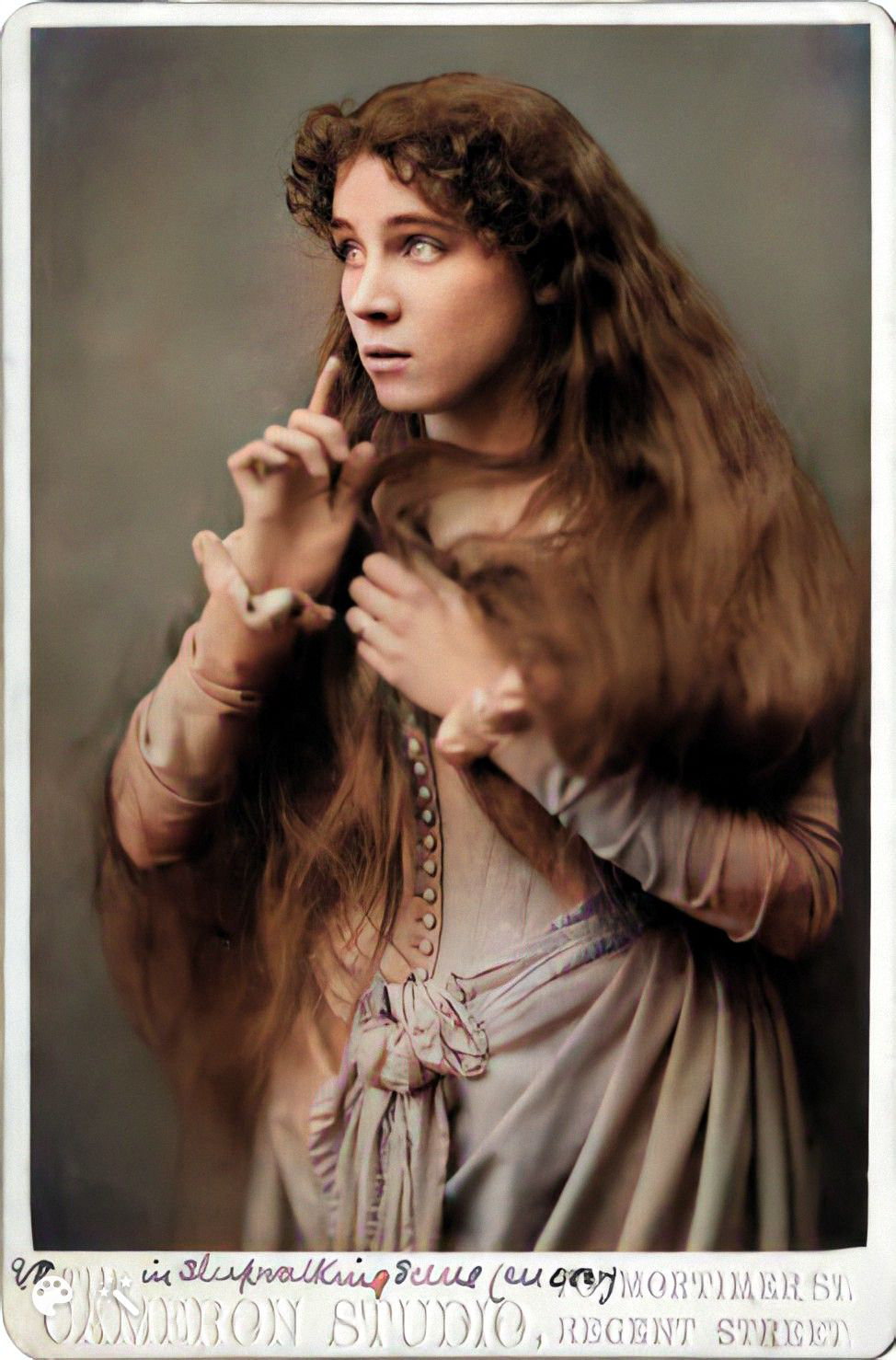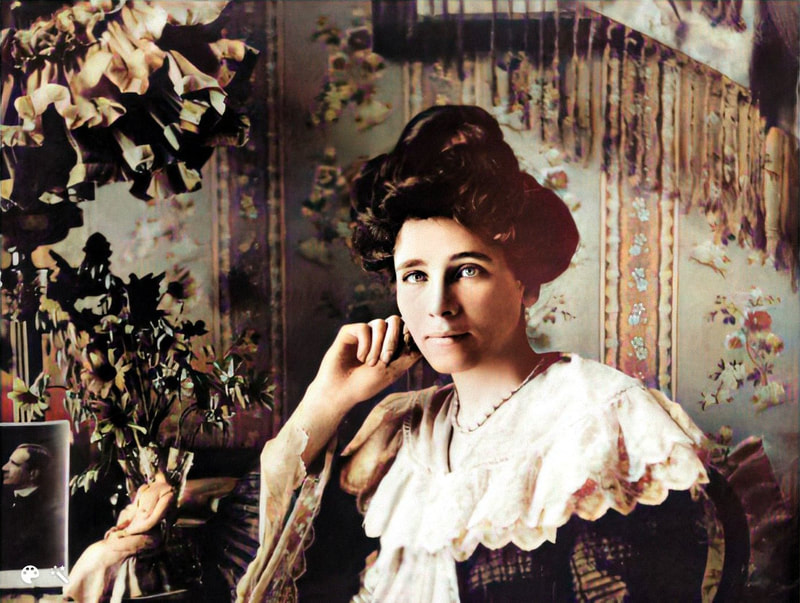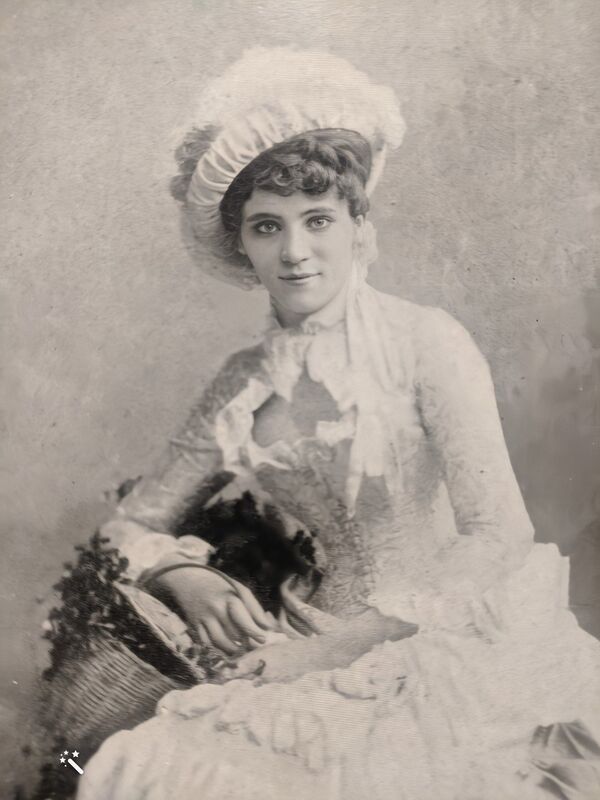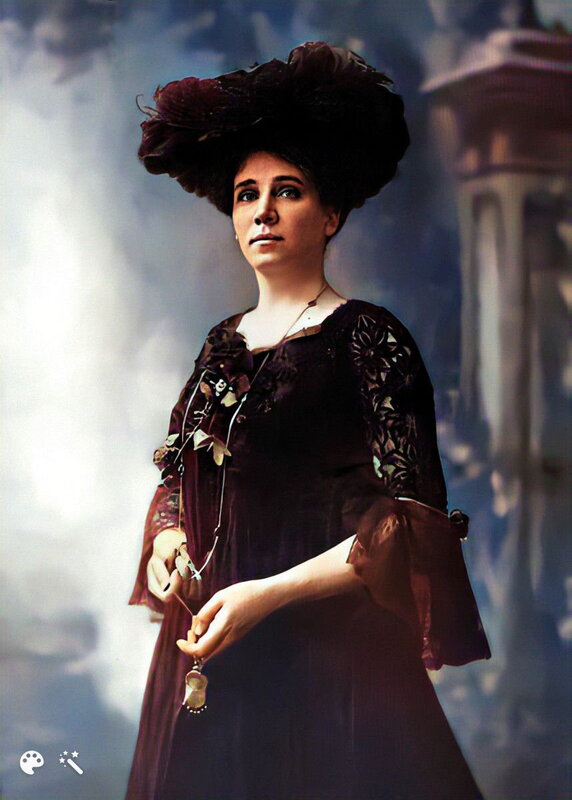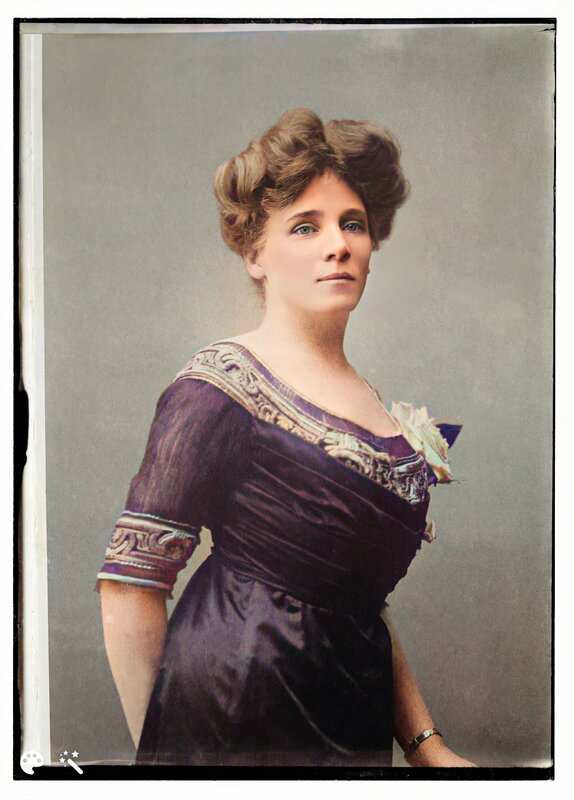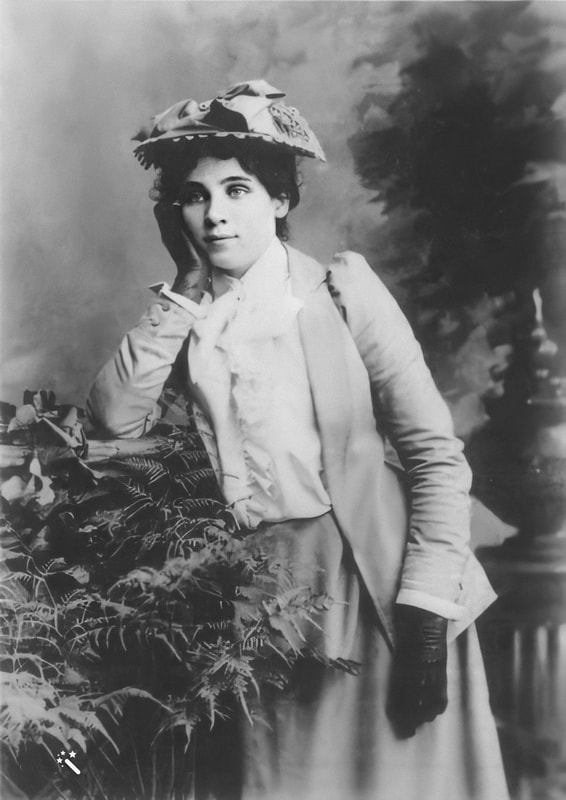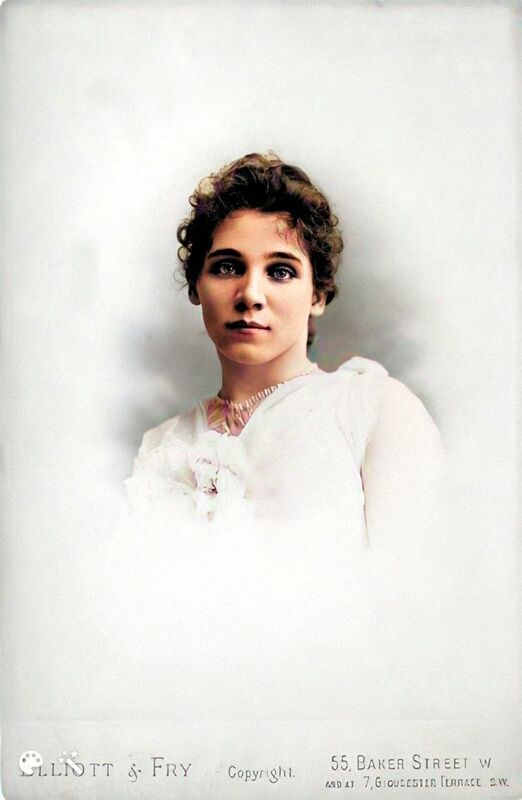|
(1862 - 1952)
With pinned back chestnut hair and piercing blue-grey eyes, few could resist the intensity of the gaze - nor the personality that matched it - of Miss Elizabeth Robins. Actress, writer, suffragist and feminist, Elizabeth Robins is arguably our most famous past Henfieldian. In her time a darling of the London literati, a friend of Oscar Wilde, Bernard Shaw and Henry James, she was known as the 'High Priestess of Ibsen' - bringing dedication to production and direction and intensity to the roles in the groundbreaking and controversial plays of the Norwegian playwright Henrik Ibsen, foremost amongst them Hedda Gabler. Elizabeth gave both the British premiere in 1891 and the American in 1898. It remains arguably Ibsen's best known play, remaining a challenging role for any actress willing to take it on today. At the same time, she found success as a novelist, publishing popular works such as the The Open Question in 1898 and The Magnetic North in 1904, based upon her own adventures on the wild frontiers of the American Klondike. Elizabeth retired from the stage in 1902, becoming an activist for women's suffrage and writing the movement's play, Votes for Women. Moving to Henfield in 1909, she remained avowedly focused on the social issues of the day for the rest of her life. Read an introduction to the life of Elizabeth Robins in our blog article: |
Elizabeth & Independent Age
Where noted below, some images are used with the kind permission of the charity Independent Age, who hold the rights to the Elizabeth Robins Papers held at the Fales Library, New York University.
During the struggle for the vote, Elizabeth opened up her retreat of Backsettown in Henfield to suffragettes recovering from hunger strike. With the encouragement of her close friend Octavia Wilberforce, this ultimately led to the house's formal opening and use as a women's shelter for 60 years from 1927 onwards. As a charity with similar ideals, the rights to the Robins Papers were gifted to Independent Age by the Backsettown Trustees to aid in their mission of supporting independent and fulfilling lives in old age. In Elizabeth's own words: 'To be a successful old woman - that's the great achievement.'
Where noted below, some images are used with the kind permission of the charity Independent Age, who hold the rights to the Elizabeth Robins Papers held at the Fales Library, New York University.
During the struggle for the vote, Elizabeth opened up her retreat of Backsettown in Henfield to suffragettes recovering from hunger strike. With the encouragement of her close friend Octavia Wilberforce, this ultimately led to the house's formal opening and use as a women's shelter for 60 years from 1927 onwards. As a charity with similar ideals, the rights to the Robins Papers were gifted to Independent Age by the Backsettown Trustees to aid in their mission of supporting independent and fulfilling lives in old age. In Elizabeth's own words: 'To be a successful old woman - that's the great achievement.'
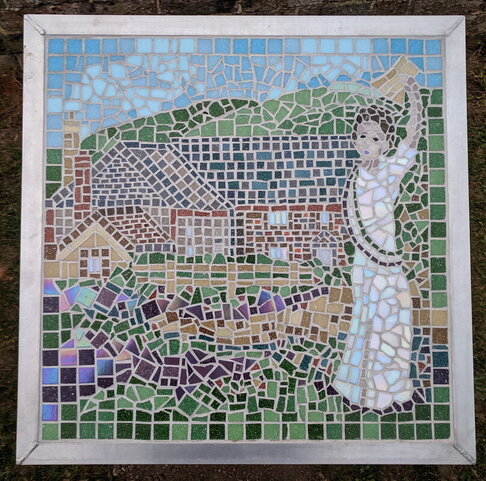
The 2019 mosaic of Elizabeth and Backsettown, a community created project in collaboration with Creative Waves. It can be seen at Coopers Way, Henfield. Image, RSG
|
Portraits of Elizabeth - Restored
We hope to recall just a little of the drama and colour that accompanied Elizabeth's stage career during the Gilded Age of America and the social disruption of fin de sieclé London. A combination of manual digital repair and algorithmic predictive colourisation and enhancement has been applied to the photographs below and the two above.
At the bottom left of images, the colour palette icon indicates use of DeOldify colouriser, the wand icon Remini enhancer.
At the bottom left of images, the colour palette icon indicates use of DeOldify colouriser, the wand icon Remini enhancer.
Website funded by the Friends of Henfield Museum, built & maintained by R. S. Gordon. Credit to Mike Ainscough for moving the website idea from discussion to reality.
© Henfield Museum. All rights reserved except where stated otherwise.
